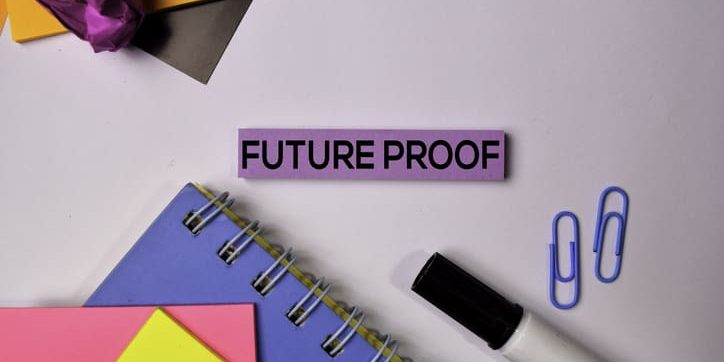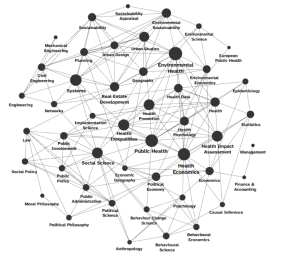The future proof approach: Learning through research on research
Ahead of our workshops with our External Advisory Board, Research Associate in Systems Approaches to Collaborative Research Dr Taru Silvonen explains what has driven her interest in research on research and how the benefits will last for projects and programmes after TRUUD.
What is research-on-research?
Research-on-research (R-o-R) is all about examining the practices and craft of doing research so we can improve the way it is carried out. This is becoming more important with a growing trend towards research teams including more people who are working across different sets of expertise. So, if we’re thinking about TRUUD, we have more than 40 people working across six universities all having their unique expertise that’s coming together to look at a highly complicated issue. That’s a great opportunity to learn about team working and influence future research practice.
How and when did you become interested in this area of academic work?
I think it’s through experience of doing research in different contexts and learning that there’s so many ways to do it ‘correctly’ that it makes sense to pick and mix approaches. My educational background is in social science, but I’ve always been interested in topics that go beyond the confines of the disciplines I’ve studied. I haven’t necessarily had that ‘Aah’ moment that I could pinpoint to but it’s more a combination of where I’m coming from. I’ve been based in six different universities across Finland, England and Wales, including faculties with different disciplinary focus, which has made me more interdisciplinary. Literally crossing borders and being able to combine knowledge in new ways has driven my interest in how research can be carried out beyond the definitions of being a social scientist, a health researcher or using specific methods.
How can it make a difference to our lives?
R-o-R is essentially about helping teams tackle complex topics and providing tools to support collaboration with others no matter what school or faculty you come from. In a way this is really future-proofing research because the big challenges we are all facing are becoming more complicated and need a broader range of expertise to be solved. R-o-R can definitely make a positive contribution in how research can more effectively make sense of the big interconnected challenges like climate change and health. That contribution’s linked to both effective or impactful research and efficiency in terms of the costs relating to major research projects.
Why is research-on-research important in a programme like TRUUD?
R-o-R is still new in academic settings which is why it might not be seen as important as the ‘hard science’ that research usually focuses on. If you look beyond academia though, there are standards and frameworks on how to work effectively and efficiently, so there’s definitely a gap for bringing that thinking into academic research too. Improving how we work in general is not a new topic but finding new ways to collaborate in science contexts is breaking new ground. Collaborating beyond our own specific expertise comes down to being aware of how we are wired as individuals and how that can stand in the way of working with others.
TRUUD brings together so many disciplines – law, psychology, engineering, real estate, economics, population health and more – that there is a real need for being open to learning from the expertise of others so that we can maximise how new know-how is developed. Working closely together from the outset of TRUUD helps us build a shared understanding of terms like ‘health’, ‘transdisciplinary’ and ‘systems’.
What are you looking to achieve?
Helping shape the way we do research and making researchers more aware of the need to learn from each other to come up with creative solutions would be a great achievement! There’s something about continuous learning and being able to admit that even though we’ve worked in research for so and so many years and we know some things inside out, there’s also so much we won’t know. Like when I was initially taught research methods back at the University of Helsinki, you basically had two options: qualitative and quantitative methods. Mixed methods wasn’t really a thing back then even if in reality, most research would benefit from both qualitative and quantitative evidence and I think the same applies to the way we do research. We should be combining elements and not just sticking to the tried and tested. Part of that challenge is bridging the gap between academia and practice too such as through the TRUUD case study work with Bristol City Council, Greater Manchester Combined Authority and Transport for Greater Manchester
How do you see the R-o-R learnings being used by TRUUD and other research teams?
In a way R-o-R is kind of forcing researchers to take a step back to consider how we are doing our work. In TRUUD this has taken the shape of the interviews and workshops with TRUUD members. That process in itself has promoted self-reflection but it’s also been an opportunity for the whole TRUUD team to come together and discuss how to do research. This all supports considering if our research practices are fit for purpose and what is standing in the way of collaboration leading to really combining knowledge across disciplines.
The learnings from TRUUD R-o-R show the importance of building shared understanding and how that is an ongoing process in a major programme like TRUUD. This will apply to research teams working in different contexts too which means that sharing best practice on how that could be done is pretty essential. We’ll be developing this idea further in the upcoming months and linking with the broader academic community to support with this. I’ve recently presented at the Association for Interdisciplinary Studies annual conference and am travelling to Utrecht in November to connect with others working on team science at the International Transdisciplinary conference organised by the ITD Alliance. These are great opportunities to talk about TRUUD as a live and ongoing research-on-research study and will also help finetune our approach by taking into consideration the work of the wider academic community




